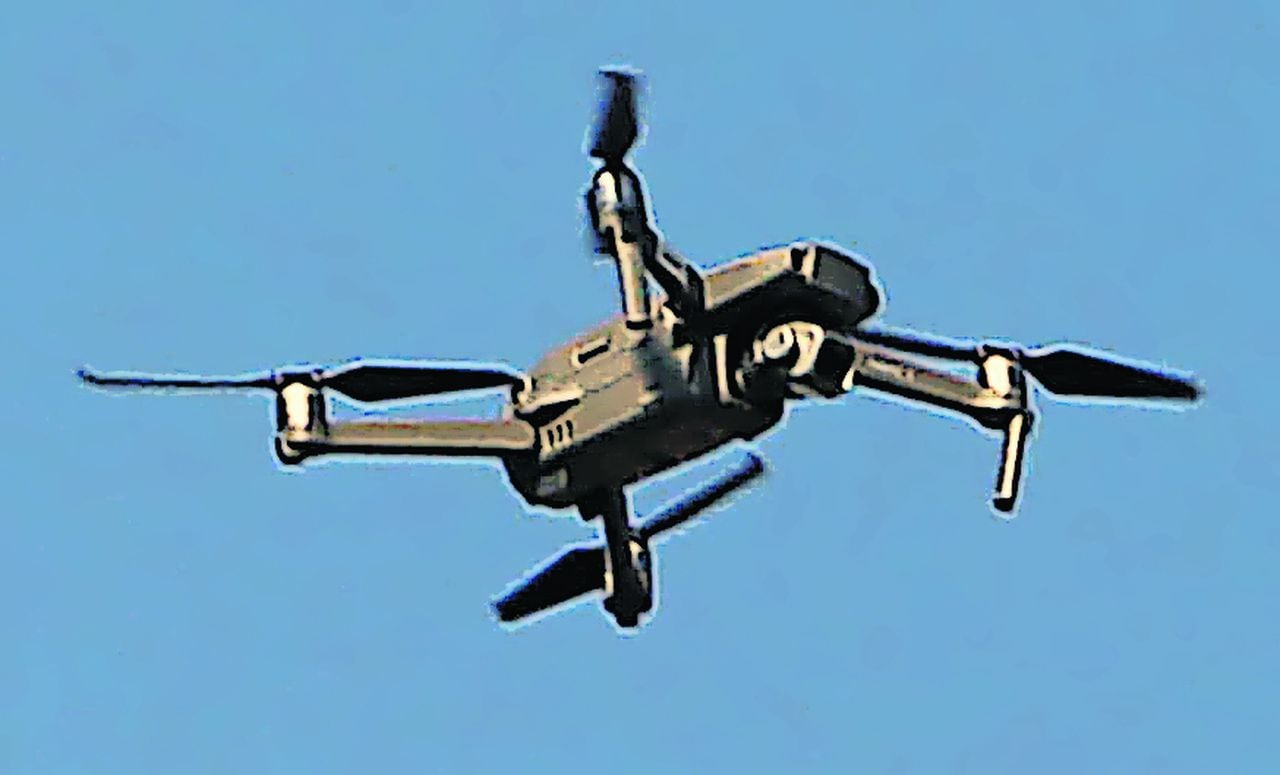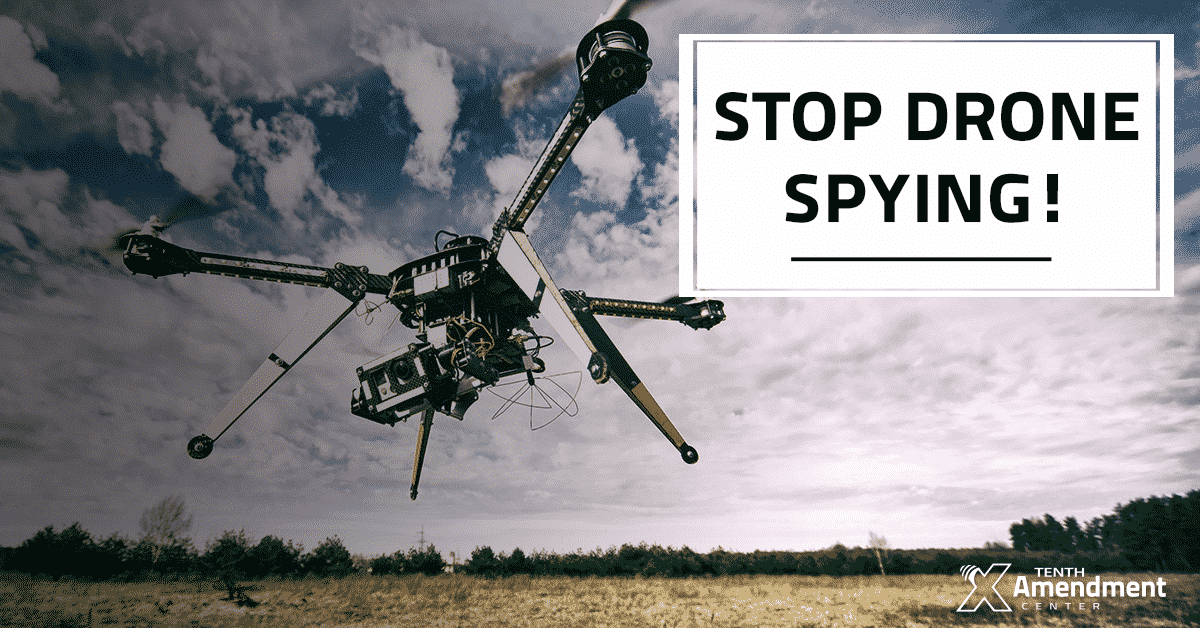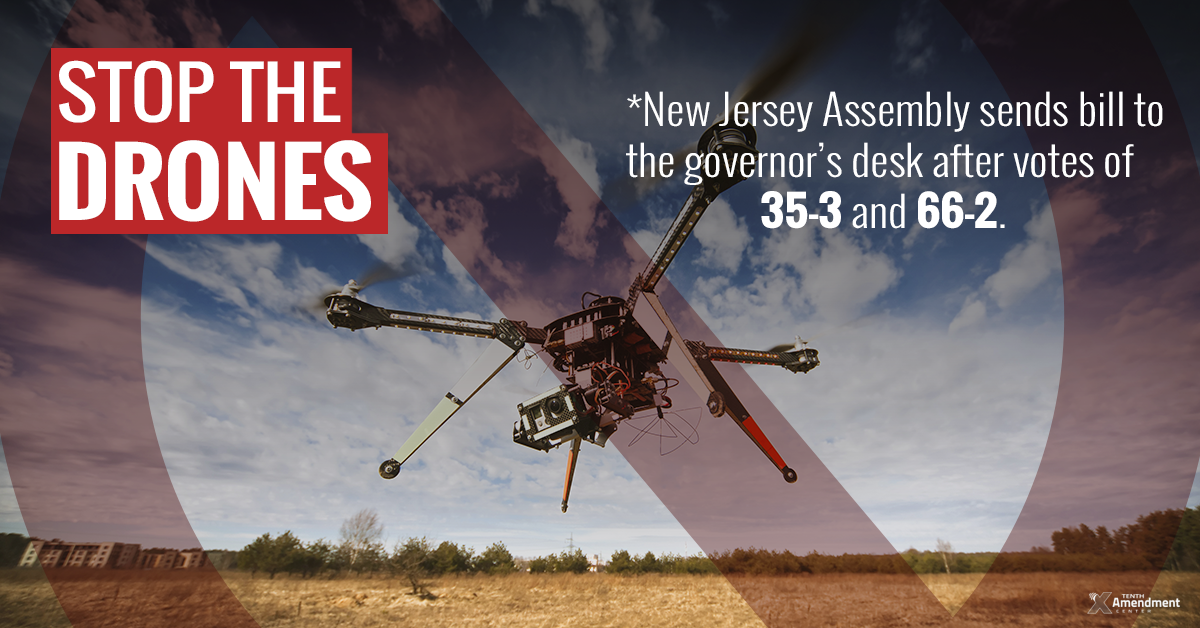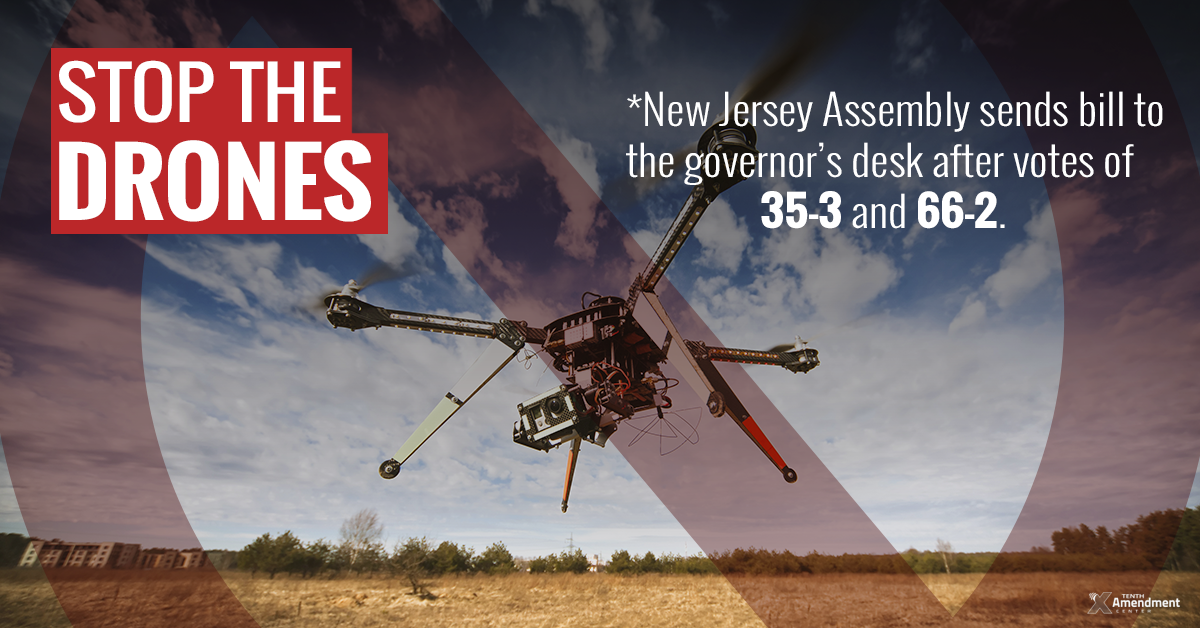Drones Over New Jersey Solved unravels the complexities surrounding unmanned aerial vehicle incidents within the Garden State. This exploration delves into the legal framework governing drone operation, examines prevalent incidents and their resolutions, and analyzes the technological advancements employed for drone detection and recovery. We’ll also consider the economic impact of drones on various New Jersey sectors and discuss future regulatory and technological trends.
From navigating intricate legal landscapes and understanding the penalties for violating drone regulations to examining the technological solutions used to track and recover rogue drones, this comprehensive analysis provides a clear picture of the current state of drone operations in New Jersey. We’ll look at successful drone recovery methods, analyze the effectiveness of different technologies, and explore the role of law enforcement in ensuring public safety.
Furthermore, we will examine the economic benefits and challenges associated with drone integration into various sectors within the state.
Legal Ramifications of Drone Use in New Jersey
Navigating the legal landscape of drone operation in New Jersey requires understanding specific state laws, penalties for violations, and comparisons with neighboring states. This section clarifies the regulations and potential consequences associated with drone usage within the state.
New Jersey Drone Laws
New Jersey’s drone laws largely align with federal regulations established by the Federal Aviation Administration (FAA). These regulations cover aspects like registration, licensing for commercial operations, flight restrictions near airports and sensitive infrastructure, and operational safety guidelines. State-specific laws might further restrict drone operation in certain areas or circumstances, such as over private property without permission.
Penalties for Drone Law Violations in New Jersey
Penalties for violating New Jersey’s drone regulations range from warnings and fines to more serious consequences, including potential jail time depending on the severity of the offense. Factors considered include the location of the violation, the intent of the operator, and any resulting damage or harm. The penalties can also vary based on whether the violation involves a recreational or commercial drone operation.
Comparison with Neighboring States
While New Jersey’s drone laws largely mirror federal standards, subtle differences exist when compared to neighboring states like New York, Pennsylvania, and Delaware. These variations might involve specific restrictions on flight altitudes, operational permits, or areas where drone operation is explicitly prohibited. A thorough understanding of these nuances is crucial for responsible drone operation across state lines.
Summary of Drone-Related Offenses and Punishments
The following table summarizes common drone-related offenses and their corresponding penalties in New Jersey. Note that these are simplified examples and the actual penalties may vary depending on the specific circumstances of each case.
| Offense | Penalty | Offense | Penalty |
|---|---|---|---|
| Unauthorized flight near an airport | Fines, potential jail time | Flying a drone without registration | Fines |
| Invasion of privacy with a drone | Significant fines, potential jail time | Reckless operation causing property damage | Fines, potential jail time, restitution for damages |
Common Drone-Related Incidents in New Jersey
Understanding the types of drone incidents occurring in New Jersey is essential for developing effective prevention and response strategies. This section examines common occurrences, their causes, and trends observed over time.
Examples of Solved Drone Incidents
Examples of solved drone incidents in New Jersey include instances of drones interfering with airport operations, drones being used for illegal surveillance, and drones causing property damage due to malfunction or reckless operation. These incidents often involve investigations by law enforcement and the FAA, leading to the identification of the drone operator and the imposition of appropriate penalties.
Frequent Types of Drone-Related Problems
The most frequent types of drone-related problems reported in New Jersey include unauthorized flights near airports or other sensitive locations, privacy violations, and property damage caused by drones. These issues highlight the need for clear regulations, public awareness campaigns, and effective enforcement mechanisms.
Common Causes of Drone Incidents
Common causes of drone incidents include operator negligence or recklessness, malfunctioning equipment, and a lack of awareness regarding airspace restrictions and safety guidelines. Other factors can include deliberate misuse for illegal activities, such as surveillance or delivery of contraband.
Chronological Overview and Trends
Analyzing drone incidents chronologically reveals potential trends, such as an increase in incidents during specific times of the year or in particular geographic locations. This information can help prioritize enforcement efforts and develop targeted public awareness campaigns.
Technological Aspects of Drone Solutions in New Jersey
Technological advancements play a crucial role in addressing drone-related challenges. This section explores the technologies employed for tracking, identifying, and recovering drones, and examines their effectiveness in various scenarios.
Drone Tracking, Identification, and Recovery Technologies
Technologies used to track, identify, and recover drones in New Jersey include radar systems, radio frequency (RF) detection systems, and counter-drone technologies. These systems can detect drones within a certain radius, identify their location and operator, and in some cases, even disable or intercept the drone.
Successful Drone Recovery Methods

Successful drone recovery methods employed by law enforcement and private entities involve a combination of technological tools and investigative techniques. This often includes analyzing drone flight data, tracking the drone’s signal, and utilizing specialized equipment to intercept or disable the drone.
Effectiveness of Drone Detection and Counter-Drone Technologies

The effectiveness of drone detection and counter-drone technologies varies depending on factors such as the type of drone, the environment, and the sophistication of the technology used. Some systems are more effective at detecting smaller drones, while others are better suited for larger, more powerful drones.
Hypothetical Drone Incident Scenario and Technological Solutions
Imagine a scenario where a drone is sighted flying illegally over a nuclear power plant. Law enforcement would likely deploy a combination of radar and RF detection systems to locate the drone and identify its operator. Counter-drone technology might then be used to safely intercept or disable the drone, preventing potential harm.
Public Safety and Drone Operations in New Jersey: Drones Over New Jersey Solved
Balancing the benefits of drone technology with public safety concerns is paramount. This section addresses the risks associated with unauthorized drone flights and Artikels safety protocols for responsible operation.
The recent increase in unauthorized drone activity over New Jersey has prompted a reassessment of airspace security measures. Understanding payload capacity is crucial for effective counter-drone strategies, and researching options like those offered by remington drone loads could provide valuable insights into potential threats. Ultimately, addressing the drones over New Jersey issue requires a multi-faceted approach including technological advancements.
Risks of Unauthorized Drone Flights
Unauthorized drone flights near sensitive locations like airports, power plants, and other critical infrastructure pose significant risks. Collisions with aircraft, interference with communication systems, and potential for malicious use are all major concerns. These risks underscore the importance of strict regulations and enforcement.
Law Enforcement’s Role in Managing Drone-Related Risks
Law enforcement plays a crucial role in managing drone-related risks to public safety through proactive monitoring, rapid response to incidents, and investigation of unauthorized or illegal drone operations. This often involves collaboration with the FAA and other agencies.
Safety Protocols for Drone Operators
Drone operators in New Jersey must adhere to FAA regulations and state-specific laws. This includes registering their drones, obtaining necessary licenses for commercial operations, understanding airspace restrictions, and maintaining situational awareness during flights. Following manufacturer guidelines for safe drone operation is also crucial.
Best Practices for Safe and Responsible Drone Operation
- Register your drone with the FAA.
- Obtain necessary licenses for commercial operations.
- Check airspace restrictions before each flight.
- Maintain visual line of sight with your drone.
- Never fly your drone near airports or other sensitive locations.
- Respect the privacy of others.
- Follow all FAA and state regulations.
Economic Impacts of Drones in New Jersey
The economic implications of drone technology in New Jersey are multifaceted, encompassing both benefits and challenges across various sectors. This section examines the economic impact of drone adoption within the state.
Sectors Utilizing Drones in New Jersey
Drones are increasingly used in New Jersey across diverse sectors, including agriculture (crop monitoring, spraying), construction (site surveying, progress monitoring), infrastructure inspection (bridge, pipeline inspections), and emergency response (search and rescue). This widespread adoption highlights the versatility and potential of drone technology.
Economic Benefits and Challenges

Economic benefits of drone adoption include increased efficiency, reduced labor costs, improved safety, and the ability to access otherwise difficult-to-reach areas. However, challenges include the initial investment costs of drones and related equipment, the need for skilled operators, and regulatory hurdles.
Comparison with Other States
The economic impact of drones in New Jersey can be compared to other states by analyzing factors such as the number of drone-related businesses, the level of drone adoption in various sectors, and the overall economic contribution of the drone industry. This comparative analysis can provide valuable insights for policy development and investment strategies.
Examples of Successful Drone Integration
Several businesses in New Jersey have successfully integrated drones into their operations, achieving significant cost savings and efficiency gains. Examples include agricultural companies using drones for precision spraying, construction firms employing drones for site surveying, and inspection companies using drones to assess infrastructure conditions. These case studies demonstrate the potential of drone technology to drive economic growth.
Future of Drone Regulation and Technology in New Jersey
Predicting the future of drone technology and regulation requires considering technological advancements, evolving societal needs, and potential challenges. This section explores the future landscape of drone integration in New Jersey.
Potential Future Challenges
Future challenges related to drone technology and regulation in New Jersey include the increasing complexity of drone systems, the potential for malicious use, and the need for effective counter-drone technologies. Ensuring public safety and addressing privacy concerns will remain critical challenges.
Advancements in Drone Technology
Advancements in drone technology, such as improved battery life, autonomous flight capabilities, and enhanced sensor technologies, will likely mitigate some of the current risks associated with drone operation. These advancements will also create new opportunities for drone applications across various sectors.
Future Regulations
Future regulations in New Jersey might involve more sophisticated airspace management systems, stricter licensing requirements for commercial operators, and clearer guidelines for data privacy and security. These regulations will aim to balance the benefits of drone technology with public safety and privacy concerns.
The recent drone activity over New Jersey has finally been addressed, with authorities implementing new regulations. For a different perspective on aerial surveillance, you might find the port dover live camera interesting; it offers a real-time view of a different location entirely. Understanding various surveillance systems helps contextualize the New Jersey drone situation and potential solutions.
Vision for Future Drone Integration, Drones over new jersey solved
A vision for the future of drone integration in New Jersey involves a seamless integration of drone technology into various aspects of society and the economy, with robust regulations and effective counter-drone measures in place to ensure public safety and responsible use. This would include the development of designated drone corridors and airspace management systems to facilitate safe and efficient drone operations.
The increasing prevalence of drones in New Jersey necessitates a balanced approach to regulation and technological advancement. While the economic benefits are undeniable, ensuring public safety and responsible operation remain paramount. This examination of solved drone incidents, technological solutions, and legal frameworks highlights the ongoing need for proactive measures to mitigate risks and harness the full potential of drone technology in a safe and responsible manner.
The future of drones in New Jersey depends on the successful integration of robust regulations and innovative technologies.
Frequently Asked Questions
What types of drones are most commonly involved in incidents in New Jersey?
While data may vary, consumer-grade drones are frequently involved in reported incidents due to their accessibility and ease of use.
Are there specific no-fly zones in New Jersey for drones?
Yes, airspace near airports, critical infrastructure (power plants, etc.), and other sensitive areas is generally restricted. Consult the FAA’s B4UFLY app for specific restrictions.
What resources are available for reporting a drone incident in New Jersey?
Local law enforcement agencies are the primary point of contact for reporting drone incidents. You may also contact the FAA.
What insurance is recommended for drone operators in New Jersey?
Liability insurance is highly recommended for drone operators to cover potential damages or injuries caused by drone operation.
